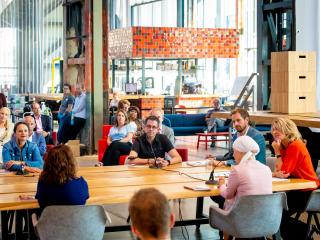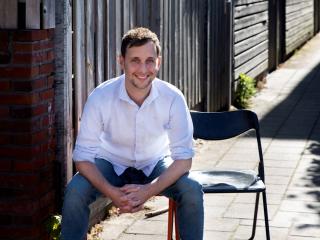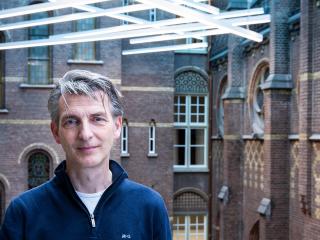Emile Aarts’ spark
On February 27, 2020, the first corona patient in the Netherlands was admitted to the Elisabeth-TweeSteden Hospital in Tilburg, and less than a month later, on March 15, 2020, the country entered its first official lockdown. Professor Emile Aarts, keeping up to date with the news, was acutely aware that the University needed to engage. And he was not the only one: other researchers at Tilburg University shared his sense of urgency. Their collaboration culminated in the book The New Common: How the Covid-19 Pandemic is Transforming Society, a period document that connects scientists and builds a bridge between science and society. Aarts talks about a team effort that is anything but common.
“Researchers are curious; they always want to know more,” Aarts relates. “That passion was aroused by global news that immediately became breaking news nationally and locally, too. My immediate response was: Tilburg is world news and in the middle of the corona crisis in the Netherlands, we as a university should act. The pandemic not only has medical consequences, but economic and social ones as well. Turbulence sharpens my senses, keeps me on my toes, and fuels me.”
Corporate approach
Aarts continues: “When I was Chief Scientific Officer at Philips Research, a fairly common practice for us to broadly reflect on and interpret a particular topic was to publish a book about it. And that approach I felt was also suitable for the corona crisis, as it forces a collaborative thinking process about a broad topic that results in a very real end product. The subject? How the corona crisis impacts on human behavior and on society, as viewed from the perspectives of the various Schools.”
Together with Ton Wilthagen, Margriet Sitskoorn, and Hein Fleuren of the Impact Program Aarts set up a project team. “They, too, sensed the moment and because they, too, are scientists, they felt the same spark.”
They felt the same spark
New Common
The team set to work and jointly wrote the first chapter of a book about the New Common: a new way of living together triggered by the crisis – in the hope that the crisis, awful though it is, be seized to create a society driven by relationships, collaboration, diversity, creativity, and empowerment. A group of 50 professors, lecturers, and students generated another 35 chapters about the impact of the corona crisis on the world, bringing together a range of scientific outlooks.
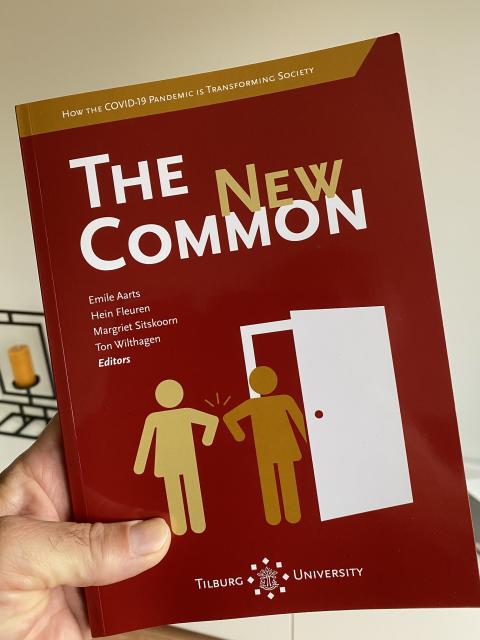
Committed contributers
Aarts continues: “In the corporate sector tight deadlines are not uncommon, in academia they are. We did not want to lose momentum by taking a year or more to write and publish the book. That is why we aimed for release in the fall of 2020. Fortunately, that amibtion proved no obstacle to the contributors. And at roughly 1,500 words each, the chapters have a manageable size.” Commitment was strong, Aarts recalls: “We would on occasion send an email to the contributors at 11 at night and within minutes several would reply.” Group dynamics were also positive: people were eager to help and appreciated the urgency of the project.
On the map
“We moved forward one step at a time, progressing from deadline to deadline. The contributors’ texts were varied, covering such topics as fulfillment, leadership, and generations. We as the project team reviewed the contributions and maintained contact. An event in the Tilburg LocHal in September enabled us to put our project on the map. At the event, appropriately titled Unlocking the New Common, several authors talked to government officials and corporate actors about the topics addressed in the book.”
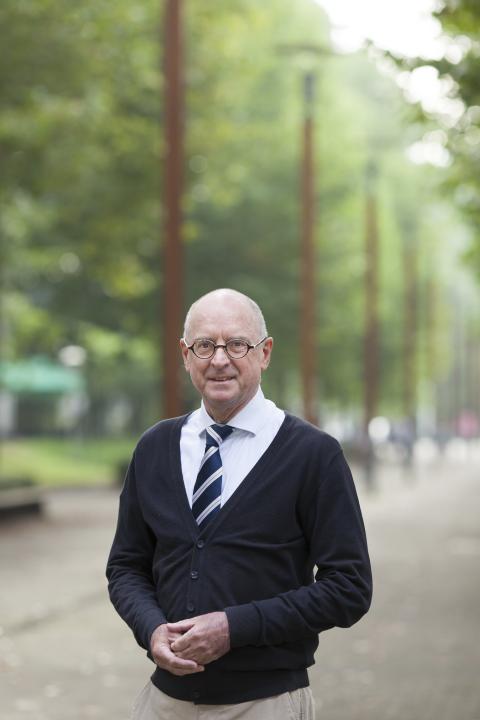
Facilitating this kind of project energizes me
Aarts is proud of what has been achieved so far. “It shows what we in Tilburg are capable of, working together. Involving all Schools and working to a tight schedule, we can publish a meaningful book about a relevant and urgent topic. Universities are uniquely placed to foster deep and often autonomous thinking. The New Common is an excellent example of scientific openness and connectedness within our university. People want to stay involved; the contributors remain committed and are poised to continue. Facilitating this kind of project energizes me, sparking a flame that kindles a fire in others. It creates a positive movement at a difficult time.”
To be continued
The New Common will not stop at a book and an event. Aarts: “Since the first wave in the spring of 2020 a lot has changed and we have learned more about human behavior and the impact of corona on society. We are nowhere near finished talking about it and we are keen to take it further. Studium Generale will arrange lectures about the New Common and we will also draw attention to it in other, accessible ways. That is how we as scientists wish to contribute to society. Now is the time and society expects us to deliver. It is not a coincidence that scientists appear on popular talk shows more often. In other words, to be continued.”
Also in Tilburg University Magazine
The 'New Common'
The corona crisis has compounded major societal challenges. Tilburg University shares knowledge and insights to reshape our society. We are happy to discuss this New Common.
Date of publication: 21 January 2021

